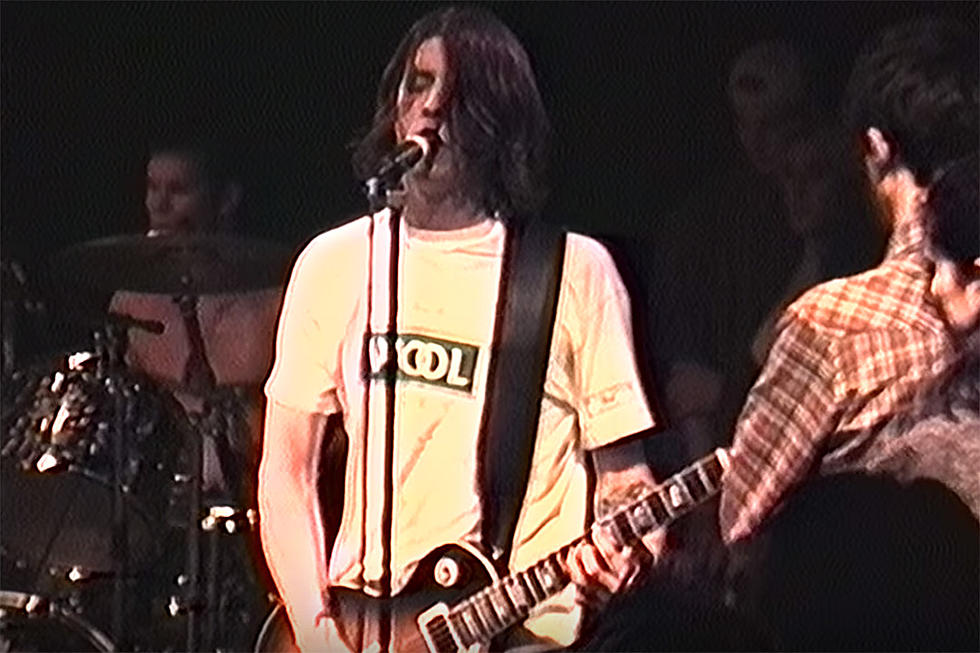
Dirty Beaches, ‘Drifters/Love Is The Devil’ – Album Review
On 2011’s 'Badlands,' Dirty Beaches frontman Alex Zhang Huntai was playing a character. He was acting the part of prototypical greaser on a dirt bike, spinning lone-wolf yarns over gritty abandoned-ashtray landscapes -- a mixture of tense Suicide-esque electronic repetition and cracked Lynch-ian dream molds. The results sounded like little else from the previous half-century, and even if Huntai didn't go far beyond that initial idea, the idea itself was so thoroughly realized -- as if existing in its own 1950s revisionist post-apocalypse -- that it hardly mattered.
With 'Drifters/Love Is The Devil' -- Huntai’s second album, and a double LP at that -- it’s just him. He's not playing a character anymore. In the run-up to the record's release, Huntai has made it clear he wants the music to reflect the state of dissolution and self-loathing he felt after a crumbled romantic relationship. He also wanted to evoke the realizations one must face and accept before moving on. The album title alone does enough to frame things, but how does the music stack up?
In a lot of ways, 'Drifters' picks up where 'Badlands' left off, sticking with the same primordial, tar-choked beat style and white-hot 1950s baritone. But Huntai has grown a little as a songwriter and producer, relying less on loops and adding in synths, field recordings and drones. It's apparent he’s willing to go beyond a coherent aesthetic. The heavily reverbed vocals and repetitive, chewed-asphalt landscapes beneath create an atmosphere that suggests Huntai is barking into darkened back alleyways. With the smoky greaser persona stripped away, the music has a kind of schizophrenic desperation. The tracks rely heavily on a tense, ceremonial immobility, and the vocals jump in and out of the smoggy backdrop with murderous intent. It’s unsettling, but in a human way, as if Huntai is alone, actively working through some darker emotions.
With their simple looping guitar hooks, motorbike atmospherics and James Chance-esque vocals, ‘Night Walk’ and ‘I Dream In Neon’ would have been right at home on 'Badlands.' But the album descends into something darker and more experimental the further along it goes. ‘Casino Lisbos’ and ‘Mirage Hall’ are the two ‘Drifters’ standouts. They’re also the most accessible and experimental, respectively. ‘Casino Lisbos’ opens familiarly enough with its post-war-Tokyo percussion sample, but then it blows up into an infectious organ-fueled zombie waltz that could probably work wonders on a dance floor. The nine-minute ‘Mirage Hall’ sounds like Vatican Shadow filtered through a smoky, neon psycho-noir. The track opens with a stilted drum loop and some tuneless synths before devolving into zero-signal ambiance and then jump starting again with a motorik arpeggio and Huntai’s screams.
‘Love Is The Devil,’ on the other hand, is an almost entirely instrumental suite of tracks, and it plays like an ornate film soundtrack left to decay for a few decades. It seeks to capture the downer emotions appropriate to Hutai’s post-breakup mental state, wandering through loneliness and frustration like empty rain-soaked streets. Unlike ‘Drifters,’ ‘Love Is The Devil’ takes from jazz, chamber music and lo-fi electronic, burying the music under a gritty, aged sheen.
‘Love Is The Devil’ is at its best on tracks like ‘Greyhound at Night’ and ‘This Is Not My City,' which loop and waver and subtly build. ‘Alone at the Denube River’ is a seven-and-a-half-minute guitar-and-piano ballad before some glistening synths pour in and raise it upward. Closer ‘Berlin’ is another standout, a bittersweet finale after a half-hour of emotional downpour.
‘Drifters/Love Is The Devil’ is the result of an artist with an abundance of ideas, and it’s a testament to Huntai’s vision that both sides of the double album feel like complete separate yet related statements. They also cement Dirty Beaches as an artist working almost completely in a realm of his own. It still feels like Huntai has room for progression and improvement, but ‘Drifters/Love Is The Devil’ remains one of the more unique and engaging experimental releases this year.
More From Diffuser.fm









